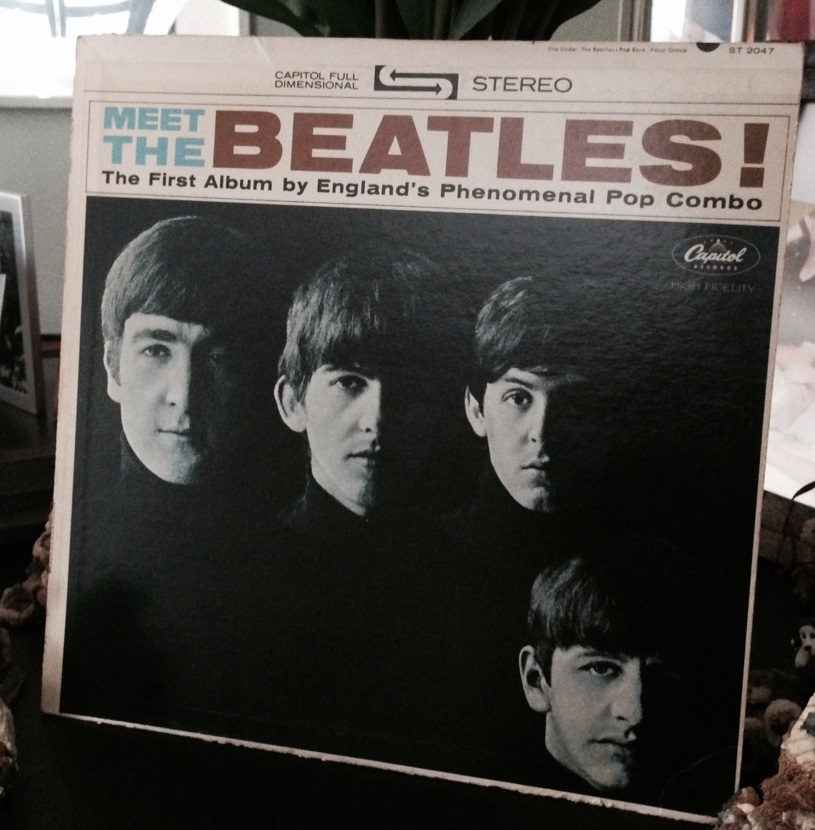Do you remember where you were at 8 o’clock p.m. eastern time on February 9, 1964? I do. I was one of 73 million people glued to TV sets around the country to see the Beatles’ first live American television appearance on the Ed Sullivan Show. I was only four years old, but it is a night I will never forget. I LOVED the Beatles. The next day, my dad took me to our local department store and bought me my very first record album, Meet the Beatles. I still have it to this day.

So what does this story have to do with your law firm? Plenty. In the decades since the Beatles first appeared on the Ed Sullivan Show, the music industry has gone through massive changes. When my dad bought me Meet the Beatles, we had to drive to the store to buy the album. Then we had to bring it home and play it on our record player. At the time we only had one record player in the house, and it was part of our TV. Do you remember those? It was a big, old wood cabinet with a TV on one side and a record player on the other.
Back then, the music industry was built around a model that sold albums. In the 1960s, we listened to our albums at home on our stereos. Sony changed that in 1980 with the introduction of the Walkman. If you were around back then you remember how incredibly cool it was to be able to pop in a cassette and listen to an album – usually about 10 songs – wherever you were. Then in 1984 Sony introduced the CD Walkman. You could take your music with you, but you still had to buy tapes or CDs. All of that changed around 1998 with the development of the MP3 music format.
Digital recording meant that we could store hundreds of songs on small, inexpensive, portable MP3 players. It meant we could take our music with us. But the digital format didn’t just change where we listened to music, it changed how we listened to music. As Simon Sinek notes in Start With Why, it changed us from “an album collecting culture to a song collecting culture.” As a result, the U.S. recording industry watched its revenue from the sale of CDs go from an industry high of $71 dollars per person each year in 2000 to about $15 dollars per person each year in 2009.
A Bit of History
- January 2001: Apple launches iTunes music software
- October 2001: Apple launches the iPod with the slogan: “1,000 songs in your pocket”
- April 2003: iTunes Music Store launches with 200,000 songs at 99 cents each
- June 2003: One millionth iPod sold
- September 2003: iTunes downloads top 10 million songs
- February 2006: iTunes sells its one billionth song
- January 2007: Apple announces the first iPhone
- February 2010: 10 billion songs have been purchased at iTunes
- February 2013: 25 billion songs have been purchased at iTunes
The recording industry executives saw all of this coming. They had four decades to watch what was happening. And that’s just it. They watched. They kept on making CDs in spite of the dramatic decline in CD sales. They clung to doing things the way they had always done them because in the past those ways had made them A LOT of money. But the world changed around them, and they did nothing. Why?
The music industry willfully failed to read the handwriting on the wall and change the way they did business. The handwriting is now [READ: has been] on the wall for the legal profession. It says things like “LegalZoom,” “Value pricing,” “Disruptive innovation,” “Legal procurement,” “Cloud-based practice management,” “Legal project management,” and “Global competition.”
So what can the legal profession learn from the music industry? Lawyers need to change the way they do business before there is no business to do. The profession can’t wait any longer. Your practice can’t wait any longer. You’ve got to begin. Just begin. Take the first step.
In his book, Tribes, Seth Godin explains why it’s so hard for us to change. I think he hits the nail on the head – especially for lawyers and law firms. Lawyers are reluctant to change the way they do business because a new way of doing business, whether it’s offering value pricing or utilizing legal project management, will rarely be as good (or as easy) as the old way. – At least not at first.
The first rule the music business failed to understand is that, at least at first, the new thing is rarely as good as the old thing was. If you need the alternative to be better than the status quo from the very start, you’ll never begin.
Soon enough, the new thing will be better than the old thing. But if you wait until then, it’s going to be too late. Feel free to wax nostalgic about the old thing, but don’t fool yourself into believing that it’s going to be here forever. It won’t.
From Tribes: We Need You to Lead Us, by Seth Godin
Every industry and every profession changes. Law is no different. Just because your law firm has been successful up to now, doesn’t mean it will continue to succeed if you continue to do things the way you’ve always done them.
